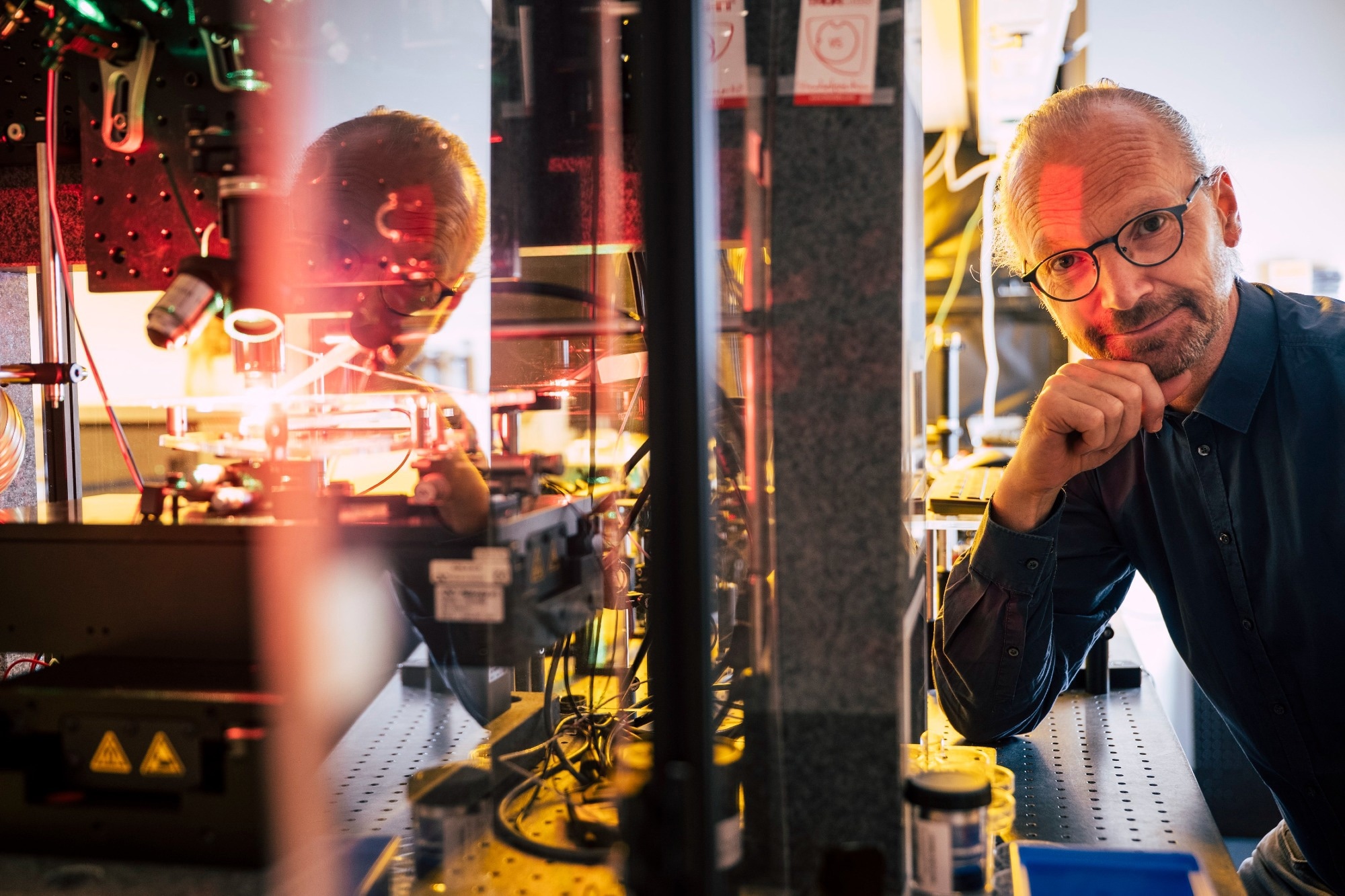Recently scientists from the Materials Institute at Joanneum Research were approved for a 1.3 million euro quantum technology project.

Bernhard Lamprecht is a Senior Researcher specialized on optoelectronics. Image Credit: JOANNEUM RESEARCH/Bernhard Bergmann
The goal is to come up with optical chips for a photonic quantum computer allowing direct quantum computing with photons. Physicist Bernhard Lamprecht is the project leader of FLMOptChips at the institute’s site in Weiz, Austria. The production of such optical chips occurs entirely at this location.
Light has been utilized directly for computing in the FLMOptChips project.
We are working on an optical quantum computer as part of this project. The quantum bit, or qubit, as the basic unit of a quantum computer, realized here with light particles, so-called photons. For quantum computing with photons, special reconfigurable optical chips are needed.
Bernhard Lamprecht, Physicist and Project Leader, FLMOptChips, Joanneum Research
Lamprecht added, “The goal is to use ultrashort-pulse laser lithography to write optics such as optical waveguides and other required optoelectronical components into sub-mm-thin glass substrates, about the size of a credit card. These customized miniaturized optical structures with high resolution in the micrometer range are the basic hardware for this type of quantum computer.”
The development of such chips is at the center of the new project of the Materials Institute.
As far as the FLMOptChips project is concerned, the Material Institute has come up with the essential optics and optoelectronics for the photonic quantum computer and manufactures comparable photonic quantum chips. A research group from the Light and Optical Technologies research group has been working on this since October 2022.
There are at least ten different ways to realize qubits. The realization through electronic excitation states in atoms trapped in ion traps, as we are doing together with the University of Innsbruck and Infineon in the joint OptoQuant project, is one possibility. A realization with photons propagating in special photonic chips, as in the new project, is another possibility.
Bernhard Lamprecht, Physicist and Project Leader, FLMOptChips, Joanneum Research
Lamprecht added, “What will ultimately catch on is completely open now. What is certain, however, is that in both cases you need light, and thus integrated optics. This is particularly interesting for us, as it coincides with one of our core competencies at the institute.”
The Austrian FFG research funding initiative Quantum Austria is financially supporting FLMOptChips, which essentially aids breakthrough research in the field of quantum physics, like quantum computing.
In Austria, there is an internationally relevant research community to progress quantum research with respect to marketable quantum computers.
The methods developed in the joint OptoQuant project, in particular for the production of integrated waveguides, serve as the basis and starting point for the new FLMOptChips project and will be taken up and further developed in this. This technology is new in Austria. Through these developments we are bringing new added value to the country.
Bernhard Lamprecht, Physicist and Project Leader, FLMOptChips, Joanneum Research
Professor Philip Walther, from the University of Vienna, will perform the first test of the new optical chips. Walther is the head of the Quantum Computation and Quantum Information Science group there.
In his research and publication work, Walther explained the need for optical chips. Hence, he will test the quality of the photonic chips that have been fabricated by Joanneum Research in his quantum optics laboratories located in Vienna.